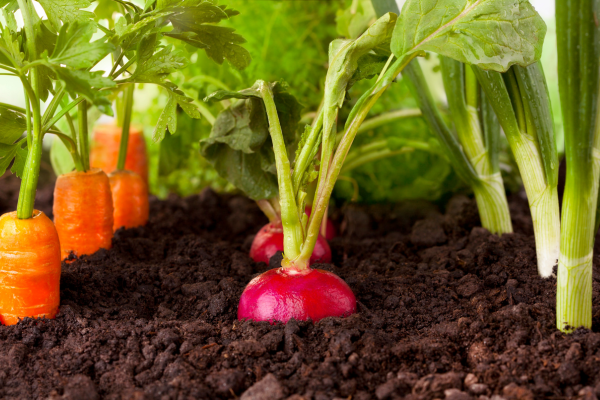Your cart is currently empty!

07 Aug Organic Gardening: Growing Plants Naturally
In recent years, there has been a growing interest in organic gardening, a practice that emphasizes cultivating plants in harmony with nature, without the use of synthetic chemicals or genetically modified organisms. It not only offers numerous benefits for our health and the environment but also allows us to reconnect with the natural world.
In this article, we will introduce the concept of organic gardening and explore its benefits, as well as discuss organic pest control methods, composting, and the use of natural fertilizers. Organic gardening is a holistic approach that focuses on nurturing the soil and promoting biodiversity. By avoiding synthetic pesticides, herbicides, and fertilizers, organic gardeners create a healthier ecosystem for their plants, wildlife, and themselves.
Here are some of the key benefits of organic gardening:
1. Promoting Biodiversity:
Organic gardening encourages the presence of beneficial insects, birds, and other wildlife, which help control pests and pollinate plants. By avoiding chemical treatments, organic gardens become havens for biodiversity, supporting a wide range of species that contribute to a balanced and resilient ecosystem.
2. Reducing Chemical Exposure:
By choosing organic gardening methods, we minimize our exposure to potentially harmful chemicals. Synthetic pesticides and fertilizers have been linked to various health issues, including respiratory problems, hormone disruption, and the contamination of water sources. Organic gardening provides a safer and healthier environment for ourselves, our families, and our communities.
3. Improving Soil Health:
Organic gardening focuses on building and maintaining healthy soil. By incorporating organic matter such as compost and mulch, we improve soil structure, fertility, and water retention. Healthy soil teeming with beneficial microorganisms supports the growth of strong and resilient plants.
4. Producing Nutrient-Rich Food:
Organic gardening prioritizes the use of natural, nutrient-rich fertilizers, resulting in healthier and more nutritious crops. Organic produce often contains higher levels of vitamins, minerals, and antioxidants compared to conventionally grown counterparts. By growing our own organic food, we have greater control over what we consume, ensuring the highest quality and nutritional value.
Now, let’s delve into some key practices and methods used in organic gardening:
1. Organic Pest Control:
Instead of relying on synthetic pesticides, organic gardeners use a range of natural pest control methods. This includes introducing beneficial insects such as ladybugs and lacewings, which prey on pests like aphids and caterpillars. Companion planting, where certain plants are grown together to repel pests or attract beneficial insects, is another effective strategy. Physical barriers like row covers and netting can also protect plants from pests.
2. Composting:
Composting is a fundamental aspect of organic gardening. It involves the decomposition of organic materials such as kitchen scraps, yard waste, and leaves, which then transform into nutrient-rich compost. Compost improves soil fertility, structure, and moisture retention, reducing the need for synthetic fertilizers. It also reduces waste sent to landfills and closes the nutrient cycle in our gardens.
3. Natural Fertilizers:
Organic gardeners rely on natural fertilizers to nourish their plants. This includes compost, as mentioned earlier, as well as other organic options such as bone meal, fish emulsion, seaweed extract, and composted manure. These natural fertilizers release nutrients slowly, providing a steady and balanced supply for plants without the risk of overfeeding or environmental pollution.
4. Mulching:
Mulching involves covering the soil around plants with a layer of organic materials such as straw, leaves, or wood chips. Mulch helps suppress weeds, conserve soil moisture, regulate soil temperature, and improve overall soil health. It also provides a habitat for beneficial insects and beneficially affects the soil structure over time as it breaks down.
By incorporating these organic gardening practices, we can create thriving gardens that are in harmony with nature. Organic gardening is not only beneficial for our immediate surroundings but also contributes to a more sustainable and resilient food system. Additionally, it offers a rewarding and fulfilling experience, connecting us with the natural cycles of growth and providing a sense of accomplishment.
In conclusion, organic gardening allows us to grow plants naturally while promoting biodiversity, reducing chemical exposure, and nurturing healthy soil. By employing organic pest control methods, composting, and using natural fertilizers, we can create a thriving garden that supports our well-being and the well-being of the environment. Let’s embrace organic gardening to cultivate a sustainable and vibrant future.
At the Environmental Factor, you’ll find a wide range of gardening products that align with organic gardening principles. From natural pest control solutions to water retention crystals, their selection is designed to support your journey towards a healthier, more sustainable garden.


